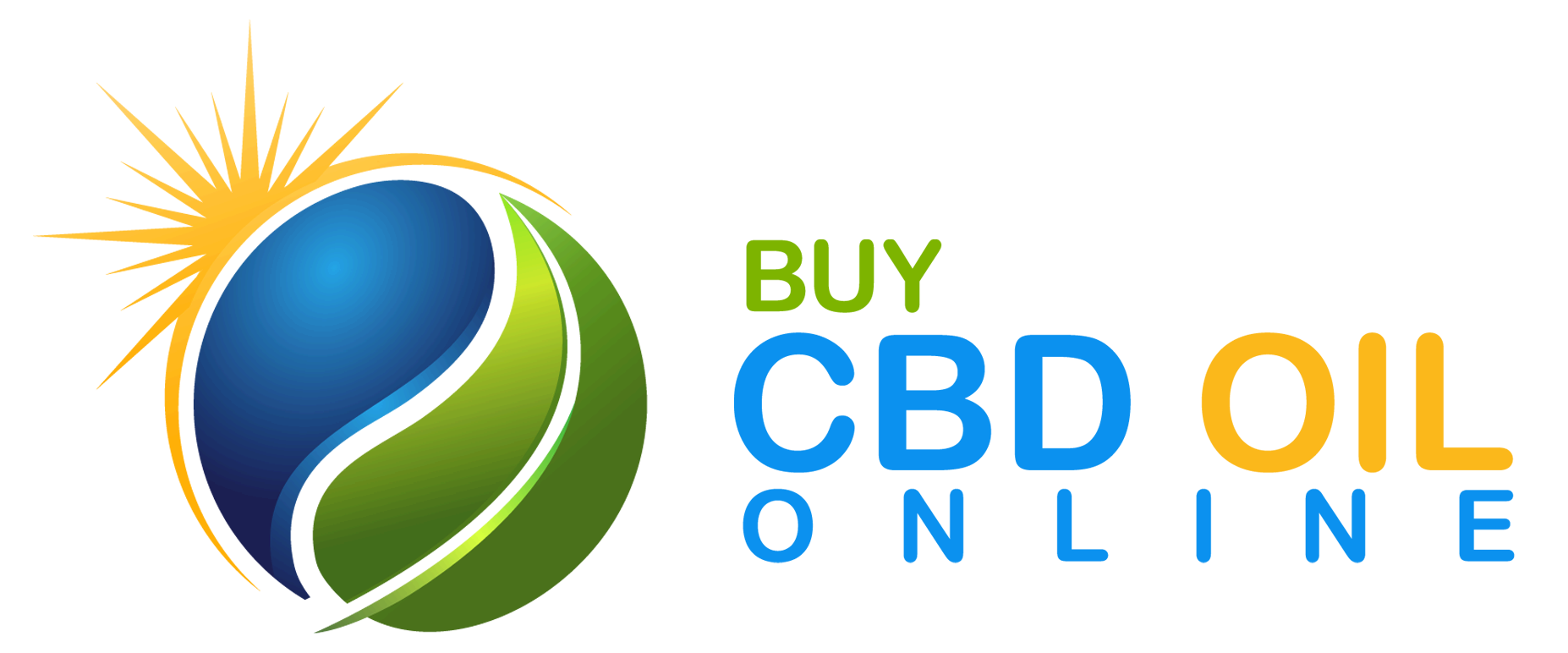CBD Isolate vs. Full Spectrum - Overview
According to a survey by Consumer Reports, one out of four Americans have tried CBD at least once in the past two years.
And while the majority of the respondents claimed that the CBD they took helped them with the problem they were trying to treat, a large number also reported that CBD was not effective for them.
Still, these numbers are encouraging to both the industry and consumers alike. As demand for these products spike and more options become available on store shelves and online, it can be hard to distinguish between all the terms and varieties of CBD.
This article addresses the differences between the most common forms of CBD – CBD isolate and full-spectrum CBD.
Chapters
A Brief History of CBD
Why All the Confusion?
CBD Is Not the Only Cannabinoid
What is the Difference Between CBD Isolate and CBD Full Spectrum?
What It Contains
Applications
Effectiveness
Price
Benefits for Users
Extracting CBD Oil
Labeling Methods
Which One is Better?
What is the Difference Between Broad Spectrum and Full Spectrum CBD Oil?
What is the Difference Between CBD Oil and Full Spectrum Oil?
How CBD Works
Which CBD Should You Take?
What to Look for in CBD Products
Where to Buy CBD Isolate and Full Spectrum
Summary
A Brief History of CBD
Though cannabis has been used for thousands of years for medicinal and psychoactive purposes, the cannabis plant wasn’t well understood until recently. Scientists were unaware of what caused cannabis to have therapeutic benefits.
1940
In fact, the cannabinoid, CBD, wasn’t even discovered until 1940 when Dr. Roger Adams and his team at the University of Illinois identified it. Two more decades of rigorous research later, and scientists finally began to understand that there were multiple cannabinoids present in the cannabis plant, including THC.
1970
However, before this discovery was made, tension was rising in the U.S. about marijuana, mainly due to the scare tactics created by the federal government. After passing an aggressive taxation law in 1937, the federal government ultimately decided to make all hemp and marijuana products illegal under the Controlled Substances Act of 1970. Under this law, even industrial hemp without THC (for fuel, rope, food, etc.) was illegal without a special permit!
2018
Fast forward to 2018, the passage of the 2018 United States Farm Bill made it legal to grow hemp and sell hemp-derived CBD products. Still, there are some existing state regulations, and there are also laws about how cannabis can be marketed and what it can be added to. For an up-to-date directory of CBD laws by state, check Plant People.
Why All the Confusion?
Though perceptions are finally beginning to shift, there’s been a long-standing stigma about hemp and CBD. People are often confused about whether taking a CBD product will make them high, turn them into drug addicts, or land them in jail. Slowly, the public has become educated, but confusing labels, nuances in terminology, and unscrupulous sellers can still make navigating the CBD marketplace a challenge.
The most important thing to note is that hemp and marijuana are not the same. Though they are both classified under the Cannabacea family and referred to as the cannabis plant, they have different chemical makeups.
To make matters even more confusing, hemp and marijuana may appear identical on the surface. Often, the only way to tell the difference between the two is by analyzing their chemical composition in a lab. In a nutshell, hemp contains 0.3% or less THC (tetrahydrocannabinol), and marijuana has higher concentrations of THC, as much as 30%.
You’re probably already aware that THC is the psychoactive cannabinoid that gets you “high,” and it’s the reason that there has been so much legal controversy about CBD products and the industry overall.
It’s important to note that both hemp and marijuana plants can contain high levels of CBD, which is a non-intoxicating cannabinoid. This has led the industry to make distinctions about whether individual products are hemp-derived CBD or marijuana-derived. At the federal level, hemp-derived CBD is legal, though there are still some restrictions at the state level, including medical use. At the time this article was written, three states (Idaho, Nebraska, and South Dakota) prohibit CBD use without a prescription.
CBD Is Not the Only Cannabinoid
In its pure form, CBD isolate is a crystallized white powder. It undergoes additional steps in the refining process to “isolate” it from the other active compounds. As a result, CBD isolate is CBD in its purest state, while full-spectrum CBD will contain additional cannabinoids and terpenes.
What is the Difference Between CBD Isolate and CBD Full Spectrum?
Though CBD gets the most attention from the media, it’s not the only cannabinoid present in the cannabis plant. It’s believed that there are more than 100 cannabinoids in cannabis, though CBD and THC are the most prevalent.
So far, the exact number of cannabinoids has not been determined (estimates range from 66 to 113), mostly because many exist in such low concentrations that they can be difficult to detect. CBD and THC tend to be the most abundant.
What It Contains
As the name suggests, CBD isolate is a pure, isolated form of CBD. When you buy CBD isolate, you’re only getting the CBD molecule. There won’t be any other cannabinoids, terpenes, or flavonoids present. It comes in a white, crystalline powder, and it won’t have any other cannabinoids like THC present.
Full-spectrum CBD, on the other hand, contains all of the cannabinoids present in the original plant. Whether this is positive or not depends on the person using the product and a couple factors:
- There is mounting evidence suggesting that consuming whole plant extract increases the effectiveness of the CBD oil. The synergistic combination of multiple cannabinoids, terpenes, and flavonoids present in full-spectrum CBD is referred to as the “entourage effect.” As a result, CBD isolate may not provide the same effect that you would get with a full-spectrum CBD product.
- Full-spectrum products can contain THC. Any full-spectrum product may contain up to 0.3% THC. If you ingest a full-spectrum CBD product, you could test positive for a drug test because of the THC content. Therefore, if you need to remain 100% drug-free for your current job, a career opportunity, athletic performance testing, or another reason, then taking full-spectrum CBD could be risky.Whether there’s enough THC in a full-spectrum CBD product to test positive will depend on exactly how much THC is present and how sensitive the drug test is.
What’s The Difference? The biggest difference when evaluating CBD isolate vs. full-spectrum CBD has to do with the presence of all cannabinoids, terpenes, and other compounds versus just the CBD molecule.
CBD isolate is at least 99% pure CBD, while full-spectrum CBD oil can contain a variety of other compounds, including other cannabinoids, terpenes, and flavonoids and more.
Applications
There are a variety of ways to purchase both CBD isolate and full-spectrum CBD. These include:
Suppositories
Yes, you read that right. Now, some companies are offering CBD Suppositories because of the high absorption rate when delivered rectally.
Sublingual Tinctures
A liquid form of CBD that’s meant to be taken by placing it under the tongue and holding it for 30-60 seconds before swallowing.
Topicals
For relief in a specific area, users may want to apply CBD directly onto their skin as an ointment using a gel, cream, salve, lotion, massage oil, moisturizer, lubricant, etc.
Capsules
For ultimate convenience, users can take CBD in pill form.
Edibles
Gummy bears and lollipops are the most common forms of edibles, but CBD isolate can be incorporated into a variety of food and baked goods.
Inhalation
Users who want fast-acting relief that goes directly to the bloodstream may choose to inhale CBD through vaporization.
CBD isolate
CBD isolate comes in other forms as well, including CBD powders and dabs. The powdered form of CBD isolate can be purchased by the gram, and it’s ideal for people who want specific doses or want to create DIY products (such as edibles and topicals) without other compounds affecting the taste and formulation.
When it comes to dabs, CBD isolate is available in wax or shatter form. Shatter gets its name because the CBD looks like shards of shattered glass. CBD wax resembles a waxy substance but the product is virtually the same.
In shatter form, the manufacturer may add in terpenes to the CBD isolate to create a specific flavor profile or to provide a therapeutic effect. Often, these terpenes mimic some of the most popular cannabis strains like Blueberry Kush and Lemon Haze, and Maui Wowie.
If you want to vape your CBD, it’s usually recommended to use a CBD isolate, not a full-spectrum product. Vaping CBD using a hot nail, also referred to as “dabbing”, tends to offer high concentrations of CBD and stronger tastes, creating what is widely thought of as a more satisfying experience.
Effectiveness
Initially people believed that pure, isolated CBD would be the most effective in treating ailments and providing other therapeutic benefits. After all, it makes sense that a compound in its purest form is the strongest. However, in 2015, researchers at the Hebrew University in Jerusalem, Israel, proposed that full-spectrum CBD provides something called the “entourage effect.”
The theory is that when CBD combines with other parts of the plant, there are synergies that allow it to have a more pronounced effect. Since then, this theory has been tested widely, and it is generally accepted to be true.
This finding has done little to diminish the popularity of CBD isolate because isolated CBD still has a wide variety of applications. People continue to flock to CBD isolate for the following reasons:
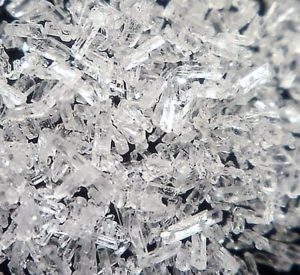 1
11
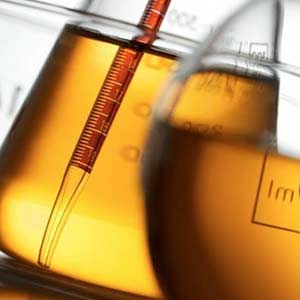 2
22
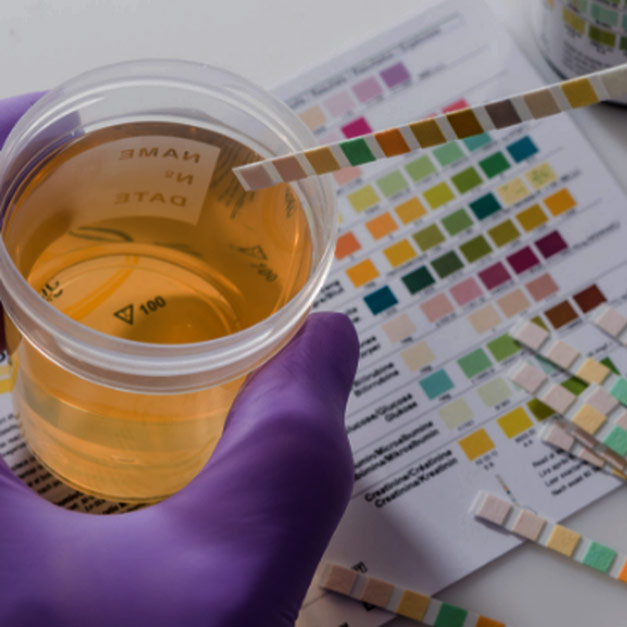 3
33
Price
As a whole, CBD isolate is significantly less expensive than full-spectrum CBD. 1,000 mg (1 gram) purchased as a single gram costs about $20. Full-spectrum CBD can cost significantly more. It’s worth taking into account that you might need more isolate to get the same desired effect as you would using a full-spectrum product.
Fortunately, you have more than one option when it comes to the form of your preferred CBD and whether you want to get it from a CBD isolate or another way. The CBD molecule is the same whether it is in isolate form or inside full spectrum CBD oil.
Benefits for Users
While CBD manufacturers are currently not allowed to say their product is intended to diagnose, treat, or cure any ailment, there is growing evidence that this cannabinoid helps with the following:
- Anxiety
- Arthritis
- Cancer
- Insomnia
- Alzheimer’s
- Depression
- Post-traumatic stress disorder
- Pain
- Multiple sclerosis, Parkinson’s disease, and other neurological disorders
- Irritable bowel syndrome
- Addiction
- Blood pressure
- Epilepsy – The Food and Drug Administration has approved the use of a prescription drug to treat epileptic seizures in children over two years old.
Extracting CBD Oil
To get CBD oil from the plant requires methods that involve applying a high amounts of heat and pressure. There are a few different ways to extract the oil from the plant material. Regardless of whether the final product is full spectrum oil or isolate, the first step is typically one of the following.
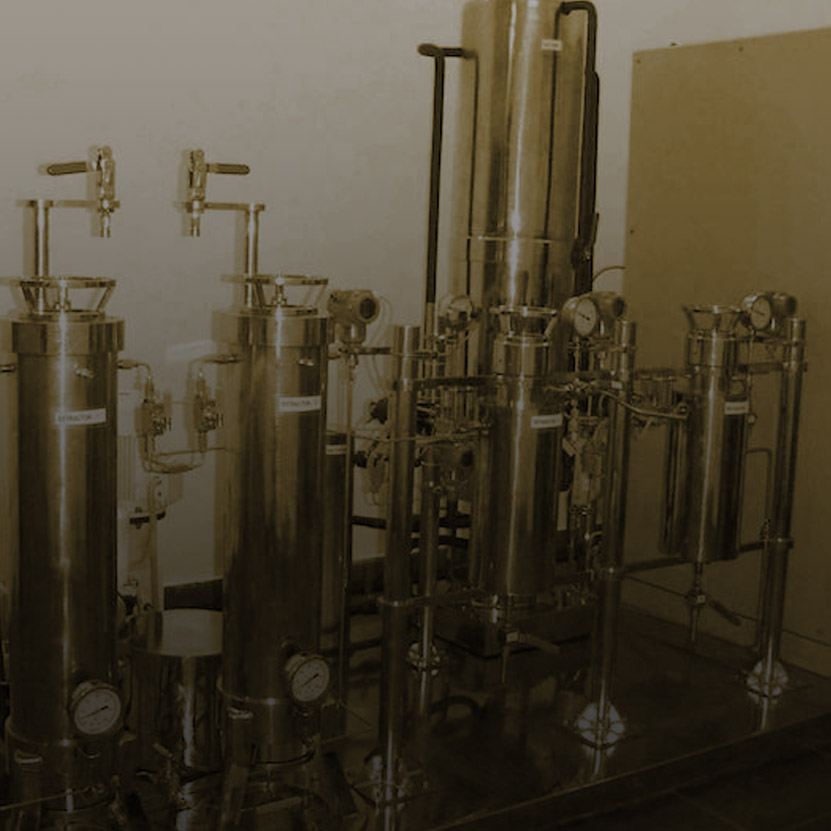
With this method, you might hear the term “supercritical” including in the description. This term refers to the CO2 being transformed into the super critical state, which acts as a solvent and separates cannabinoids from plant material. Of all the methods, this one is the most expensive, and it is also the most preferred because CO2 is a harmless chemical. CO2 extracted oil is widely considered the safest for the consumer.
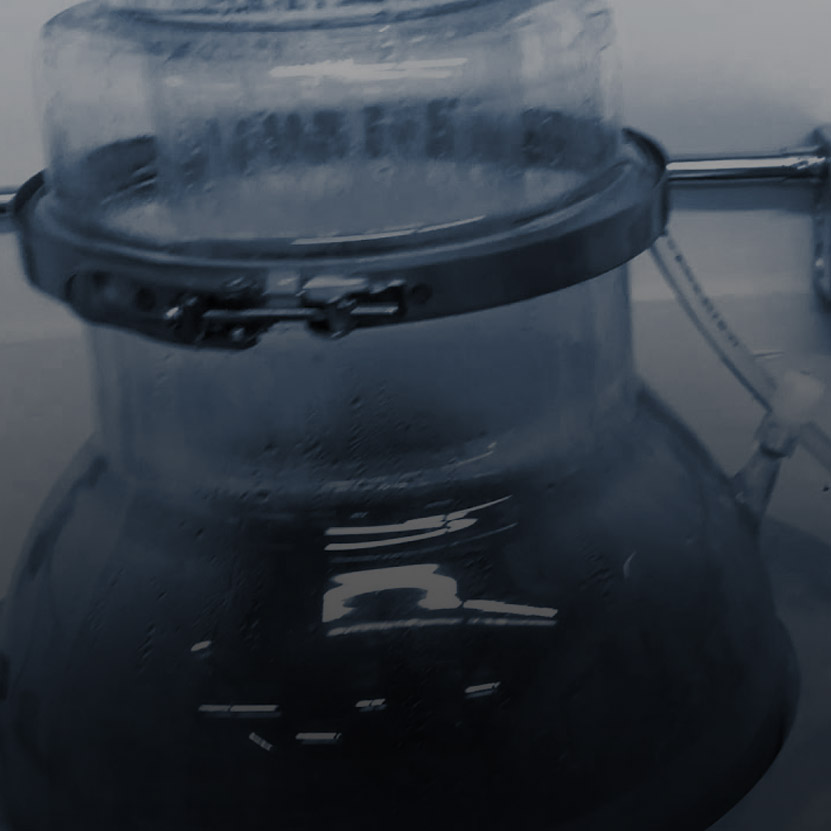
This process involves heating water and separating the vapors that result from the steam. Machinery condenses and separates the vapors. While this method is clean and safe, it’s inefficient and very slow. There’s also a risk that if the temperature of the steam is too high, it can damage and alter the terpenes and the cannabinoids.
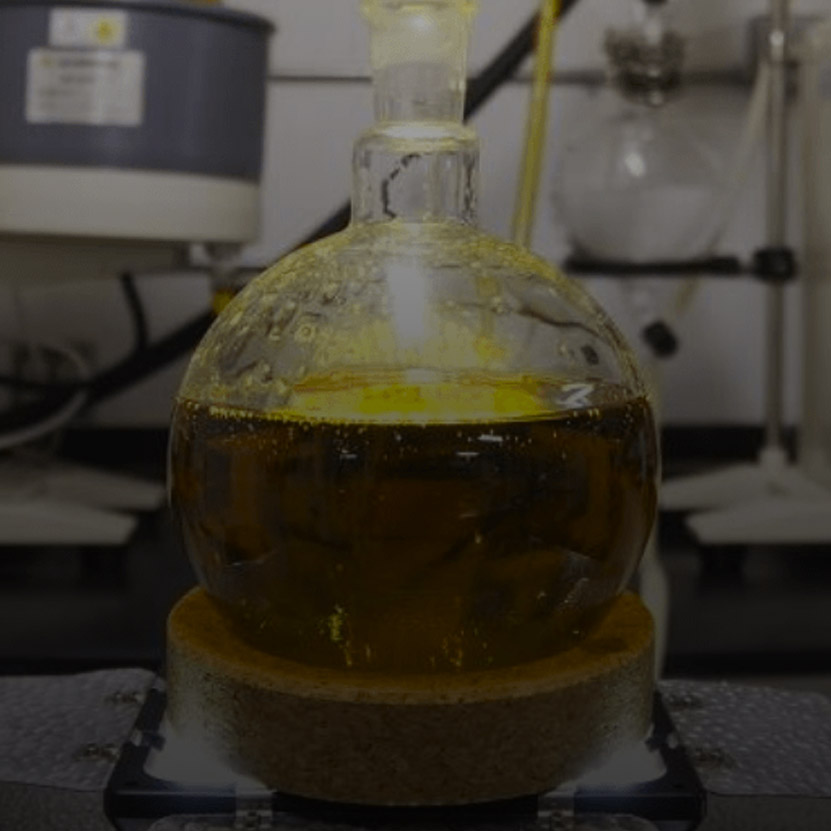
Chemical solutions separate the oil from from the plant, and once the solvents evaporate, you’re left with a raw CBD crude oil. When comparing methods, this is more efficient than steam distillation and less expensive than CO2 extraction, but some of the solvents used in the process can leave behind residues which require further processing to remediate.
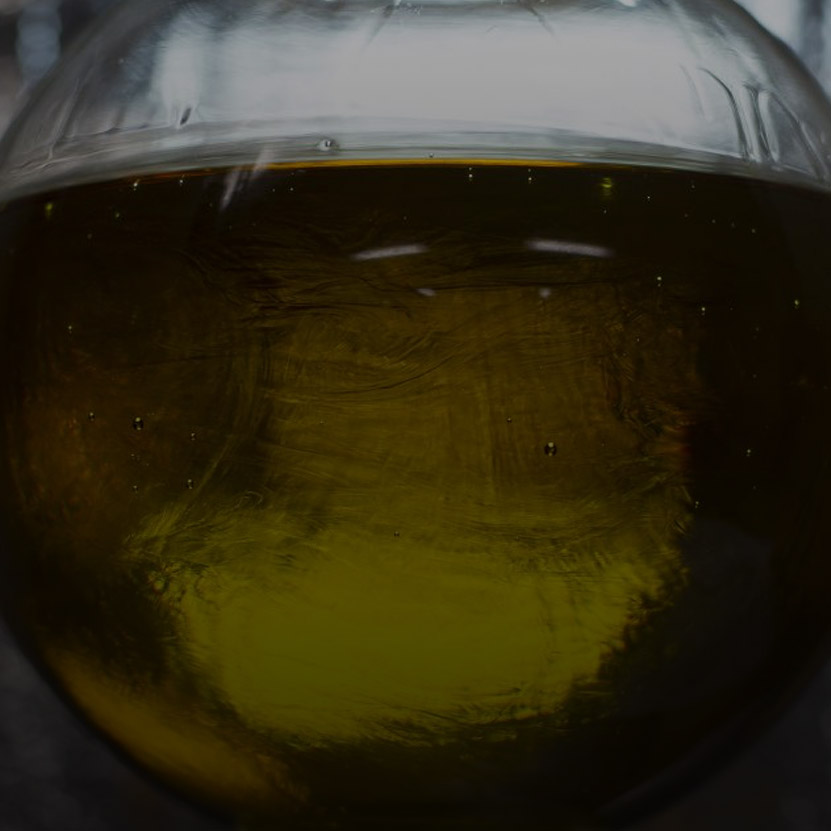
Because toxic residue from the solvents can be harmful, some manufacturers use a natural solvent like ethanol. Ethanol extraction is inexpensive and efficient and the ethanol can easily be evaporated from the solution to create a high CBD crude oil.
Once the oil is extracted, it’s considered full-spectrum, meaning that other cannabinoids (not just CBD) are present. To remove the other cannabinoids and create a pure CBD isolate, there are additional steps in the manufacturing process.
The first step in the process is called the “winterization” process and this process removes the fats and waxes that are in the full spectrum oil. After winterization, the material is made into full spectrum distillate using distillation equipment. Once the full spectrum distillate is made, the CBD molecule is isolated from the rest of the cannabinoids in the distillate. The end product is a white crystallized substance that resembles crystalized sugar. It is flavorless and odorless.
Labeling Methods
Because the FDA (Food and Drug Administration) is not broadly regulating CBD products, there’s been a massive problem with mislabeling. A recent study found that the amount of CBD contained in a product was only accurate in 30% of labels. In the majority of the samples studied, the amount of CBD was either overstated or understated.
Further, many of the samples contained much higher levels of THC than are acceptable under state laws. Since plant genetics vary greatly, it’s natural that there would be variation among batches and strains. For this reason, any CBD product you buy should provide you with third-party lab results from each batch so that you know that your CBD oil was formulated correctly.
For those buying CBD isolate, they can be virtually guaranteed, 99%, that there is no THC because that cannabinoid would have been fully removed during the extraction process. However, in the case of full-spectrum CBD products, it’s impossible to make that assumption. Companies may use a lab equipment to remove the THC, but it is likely that trace amounts of THC still exist in the product.
Which One is Better?
Strictly speaking, neither is “better.” Whether you choose a full-spectrum product or a CBD isolate should depend on your needs and goals. If you want the benefits of the “entourage effect,” and you’re comfortable with small amounts of THC, then full-spectrum CBD is likely your best bet.
On the other hand, if you want to control your dosing more precisely, make your own products, and avoid the potential of failing a drug test, then CBD isolate is a wise choice.
What is the Difference Between Broad Spectrum and Full Spectrum CBD Oil?
Broad-spectrum CBD is the new kid on the block. And, as if there weren’t enough terms to keep track of in the cannabis industry with terms like CBD isolate, THC and terpenes, now there’s another one to add to the mix.
The main difference between these two forms of CBD oil is the cannabinoid profile. Broad spectrum oil contains several of the cannabinoids found in full spectrum oil, but at lower concentration levels. Broad spectrum oil typically has lower levels of THC which makes it attractive to manufacturers and consumers alike.
Full-spectrum CBD oil can have >0.3% THC. Broad spectrum typically has <0.3% THC.
The reason that broad-spectrum CBD is rising in popularity alongside CBD isolate is that it allows users to experience some of the benefits of the entourage effect without getting very much THC.
To sum up, broad-spectrum CBD is similar to full-spectrum CBD but with much few minor cannabinoids and very little THC.
What is the Difference Between CBD Oil and Full Spectrum Oil?
CBD oil is an overarching category of products that includes full-spectrum oil, broad-spectrum oil, CBD isolates mixed with a carrier oil like coconut oil or olive oil, and CBD isolate in powders and other forms. Therefore, you can think of full-spectrum oil like a type of CBD oil.
Any discussion of the benefits CBD oil wouldn’t be complete without cautioning users not to be confused by hemp seed oil posing as CBD oil.
If you look on Amazon, for example, you might see small bottles of hemp oil that look like CBD products. There could even be the iconic cannabis leaf printed on the labels.
What consumers need to understand is that there are two different types of hemp oil:
- Hemp seed oil, which is cold-pressed oil from the seeds of a hemp plant.
- Hemp or CBD oil, which is oil extracted from the dried flowers and leaves of the hemp plant.
Hemp seed oil is nutritious and a fantastic addition to several cooking recipes to experience a whole new world of flavor. It is rich in omega-3 fatty acids and other nutrients that help add to a balanced diet. However, it should not cost much money. An 8-ounce bottle of organic hemp seed oil can be purchased for under $10 at a grocery or vitamin store.
Currently, Amazon is prohibited from selling CBD products, including CBD isolate. So, if you see 1-ounce bottles of “hemp oil” selling for $24.95, don’t waste your money. Those products contain no CBD, and while they’re nutritious, they aren’t going to give users the benefits they’re seeking from CBD products.
If you read the reviews of these products, you will see people reporting that they got relief from conditions like insomnia and anxiety. It’s difficult to pinpoint why reviewers wrote these statements. It’s possible that they are paid reviews, and it’s also a distinct possibility that they received genuine relief from the placebo effect.
Either way, for your health and your wallet, you must know the difference. CBD oil can be labeled as hemp oil, especially if it’s derived from hemp. To ensure that you are buying hemp oil with CBD and not merely hemp oil, check the label for CBD dosages and also review the third-party lab results to ensure that the batch you’re buying is accurately represented.
How CBD Works
The cannabis plant is chemically complex and vastly misunderstood. Decades of misunderstanding caused the entire cannabis plant family to be federally outlawed in the United States, and even today, there’s a stigma and controversy about CBD. People mistakenly think that it “gets you high,” but in reality, the psychoactive effect, mainly, comes from one cannabinoid in the plant: Delta-9 THC.
CBD, on the other hand, works in an entirely different way. It doesn’t have mind-altering, psychoactive properties, and you don’t get “stoned” from consuming it. However, it is widely believed to have calming effects. It can be thought of the yin to THC’s yang, if you will.
Though recreational users are apt to seek out the euphoric effect that THC provides, people with specific health concerns are more attracted to CBD with low or zero levels of THC.
One of CBD’s most-known benefits is that it influences the function of the endocannabinoid system, but it affects other biological systems as well. That’s why CBD is often marketed as a natural aid to help with anxiety, insomnia, pain, seizures, appetite, and more.
The endocannabinoid system alone is responsible for a variety of functions in the body, including pain sensations and the health of the immune system. The body contains two different types of endocannabinoid receptors that cannabinoids communicate with: CB1 and CB2. When CBD enters the body, it interacts to these receptors and triggers a physiological response in the body.
Research suggests that CBD triggers the endocannabinoid system to return the body to homeostasis. Among many benefits, CBD can help your body function more efficiently which may reduce inflammation, pain, anxiety and insomnia.
In addition to potentially increasing the body’s own endocannabinoids, CBD consumption can also activate various receptors, helping them function more properly. The process can be thought of like turning up lights in a dim room. It’s also believed that CBD can help prevent brain cells from dying, which is critical for conditions like Alzheimer’s and depression.
Until recently, cannabis research centered around THC (delta-9-tetrahydrocannabinol), which, in fairness, has a stronger effect on the endocannabinoid system. It’s only been within the last decade that scientists have focused study efforts on CBD and CBD isolate. It is one of the most abundant active compounds in the plant, and until it was studied, people’s success with taking CBD products was mostly anecdotal.
Now scientists understand that CBD from cannabis has incredible therapeutic properties. The FDA has approved a pharmaceutical version of CBD to treat epilepsy. The drug is called Epidiolex, and it is a purified form of cannabidiol, aka CBD isolate.
Which CBD Should You Take?
The short answer is, it depends. Consider which benefits you hope to experience, which consumption method is most convenient or desirable for you, and what your budget is.
Here’s a quick guide to help you in the decision-making process:
Buy CBD isolate
Buy full-spectrum CBD
Buy broad-spectrum CBD
What to Look for in CBD Products
There are hundreds, if not thousands, of companies selling CBD products, and more are popping up daily. Because of CBD’s reputation to help with a wide variety of ailments with almost no reported side effects, there’s been a “green rush” to get cannabis products to the marketplace and build customer loyalty.
As cannabis products like CBD isolates are rushed to the market, and new entrants compete to make their brands known, consumers can fall victim to false claims, mislabeling, and general confusion.
When you’re shopping for CBD products, whether online or in the physical store, look for the following:
- CBD Concentration: Look for a reasonable amount of CBD per serving size. Because there are no standard dosing recommendations yet, most experts suggest starting with about 5-10 mg daily and then increase gradually to find what works best for each individual.
- THC-Free or Contains THC: Some CBD users prefer a little or a lot of THC in their CBD while other people want (or need) to steer clear.
- Origin: Reputable sellers will disclose where their hemp was grown, and they may even share information about their growing practices. In general, avoid hemp from outside the U.S. where regulations might be lax, and products have a reputation for being shoddily produced and dangerous.
- Organic: An organic certification isn’t a requirement for CBD products, but a company that uses organically grown hemp and uses organic ingredients indicates that the company spent extra money to make their product as clean and healthy as possible.
- Claims: Since CBD products aren’t yet regulated by the FDA, companies are not allowed to make strong claims about the benefits. They must provide a disclaimer that their compounds are not intended to diagnose, treat, or cure any diseases. If a company is making strong claims, then steer clear.
Where To Buy CBD Isolate and Full Spectrum
CBD Isolate and Full Spectrum for Sale
If you’re interested in buying CBD isolate for personal use, the most comprehensive source is Buy CBD Oil Online. In addition to supplying powder, slabs, and terpene-infused crystals, they also have a range of ready-made products from a variety of top-notch brands, including Charlotte’s Web™, Bluebird Botanicals™, and Best Life Hemp™.
Check out our Full Spectrum Products here
If you’re a pet owner, you’ll be pleased to see an array of options, ranging from CBD tinctures to treats and chews.
CBD Isolate and Full Spectrum Wholesale
If you have a favorite brand and you want to buy in bulk (either for personal use or to resell), then it pays to go direct to the manufacturer. BuyCBDOilOnline for example, can sell you CBD isolate and Full Spectrum in quantities ranging from 100 grams to multiple kilograms.
Summary
Despite the dizzying area of labels and similar-sounding terminology, when comparing CBD Isolate vs. Full-Spectrum, CBD can be broken down into three main options:
- CBD Isolate – It contains only one cannabinoid: CBD
- Full-spectrum CBD – It contains all of the cannabinoids present in the plant (including small amounts of THC), as well as terpenes, flavonoids, vitamins, plant fats and waxes.
- Broad-spectrum CBD – This is full-spectrum CBD that has been refined to remove the THC to almost non-detectable limits.
When determining which product is right for you, there’s not a single correct answer. What works best for you will be based on a variety of factors including your age, health, weight, diet, exercise, etc. While full-spectrum CBD oils tend to get the most respect at the moment (due to the entourage effect), CBD isolate can be very effective for those people are sensitive to cannabinoids or THC, or who cannot have THC because of a drug test. Both full spectrum and CBD isolate products have demonstrated healing powers that can only be measured by the users themselves.
